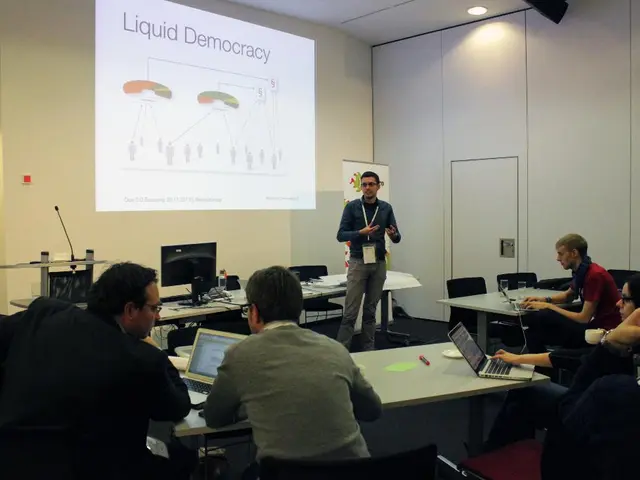Trump's Move Against California's Electric Car Mandate: A Setback for Tesla
Trump impedes California's electricity-driven vehicle regulations
In a move that could cost the Tesla company dearly, US President Donald Trump has scrapped California's plan to speed up the transition to electric vehicles. This latest move intensifies the ongoing tussle with California Governor Gavin Newsom.
Since the 70s, California has had the authority to set stricter emissions standards than the rest of the country. Their ambitious goal from 2035 is to only sell battery-operated or hybrid cars, a move that Trump finds disturbing. Critics from the auto industry claimed that this goal, given the size of the California market and the support from other states, would significantly impact businesses beyond California's borders. After all, California is the largest market for electric vehicles in the US, with electric and hybrid cars accounting for a quarter of new registrations.
Trump's Republican allies in both congressional chambers have passed resolutions regarding this issue, which Trump has now signed. California promptly took Trump and the Republicans to court over their actions.
Blow to Tesla's Carbon Credit Business
Tesla, a pure electric vehicle manufacturer, has been benefiting from selling carbon credits for CO2 emissions. In the last quarter alone, this brought in revenues of $595 million, while Tesla made $12.9 billion from car sales. Trump's actions against California are a significant setback for Tesla's carbon credit business. Elon Musk, Tesla's CEO, has remained confident in the company's ability to compete, indicating Tesla's readiness to adapt to changing regulatory environments.
Musk was a close ally of Trump, having donated more than $250 million to his election campaign last year. However, they had a falling out over the tax and spending bill pushed by Trump. Musk publicly criticized Trump, but then backtracked and apologized this week. Trump now refers to Musk as a "friend", albeit a "strange" one. He also denies that Musk tried to prevent him from abolishing the electric car goal.
Trump's current squabble with California Governor Newsom concerns protests against the US government's deportation actions, particularly in Los Angeles. California has already filed a lawsuit in response, citing the President's "divisive, partisan agenda" and describing it as "illegal" and "reckless."
Some insights on the potential implications for Tesla:
- Competitive Market: The rescinding of the mandate creates a more competitive market where consumers have more options, including gasoline-powered cars and hybrids. This could affect Tesla's market share as consumers might opt for other types of vehicles.
- Regulatory Environment: The move signals a departure from stringent emissions standards, which could influence Tesla's strategic decisions and investments in electric vehicles. However, with several countries and some U.S. states still pushing for electric vehicle adoption, Tesla might focus on those markets.
- Tesla's Response: Tesla is expected to adapt to changing regulatory environments and compete effectively in a broader market without relying on state mandates.
- Long-term Strategy: Tesla might shift its focus towards global markets with electric vehicle mandates still in place or being strengthened. This could help Tesla maintain its position as a leader in the electric vehicle sector.
- Cost Competitiveness and Innovation: Without the mandate, Tesla might need to focus on cost competitiveness and innovation to attract consumers choosing electric vehicles voluntarily.
Sources: ntv.de, ino/dpa
Related Topics:
- Electric Vehicles
- Tesla Motors
- USA
- California
- Donald Trump
- ICE Phase-Out
- The Commission, in light of Trump's move against California's electric car mandate, might be asked to propose a directive on the protection of workers from the risks related to exposure to ionizing radiation in the environmental-science domain, considering the potential increase in nuclear power plants due to the shift towards electric vehicles and reduced investment in renewable energy.
- Finance analysts are scrutinizing the impact of this political decision on the technology sector, particularly on electric vehicle manufacturers like Tesla, and predict a potential resurgence of investments in fossil fuel-based automobile companies as a result of the scrapped mandate.
- Given the ongoing tussle between Trump and California Governor Newsom, this general-news event could open a debate in political circles about the role of the federal government in regulating state environmental policies, with proponents emphasizing the need for standardized regulations across the nation to promote sustainable practices and opponents arguing for the preservation of each state's autonomy in this regard.








